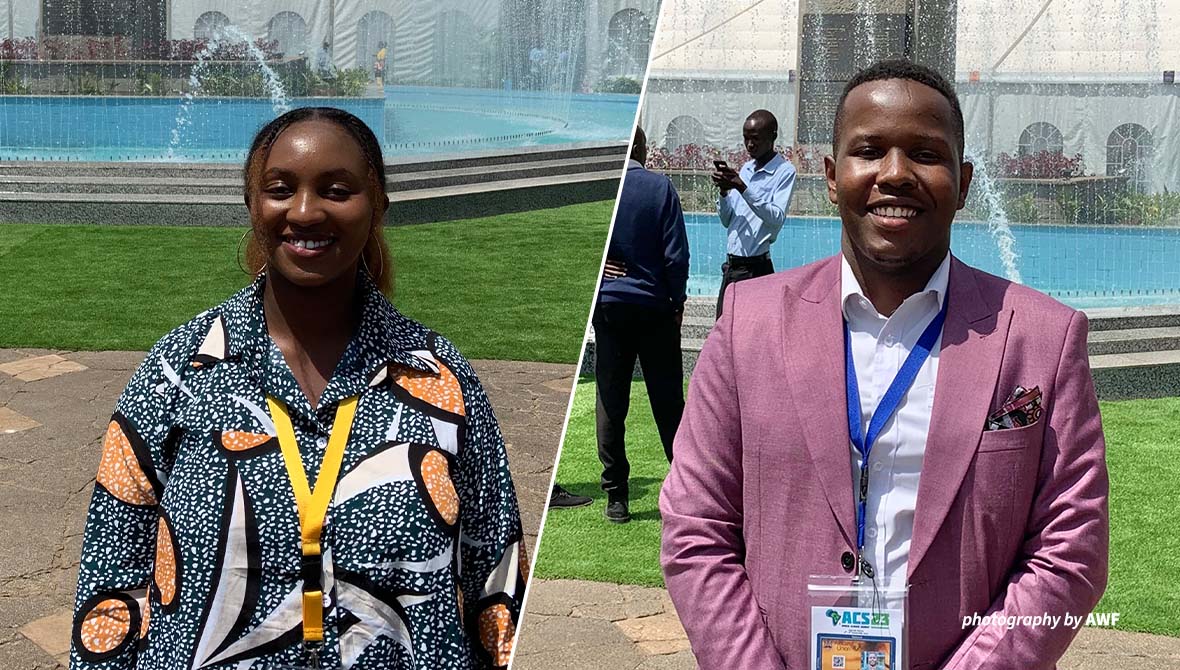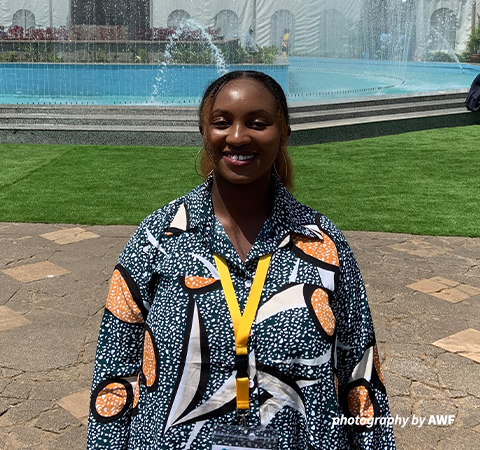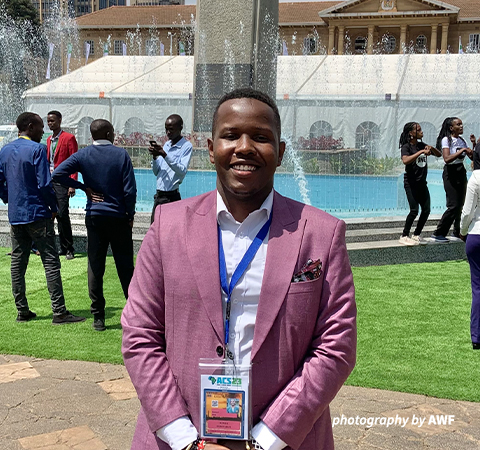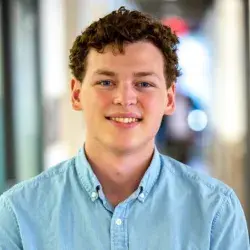Africa Climate Summit youth bring their declaration to the summit and beyond

From September 1-3, the Africa Youth Climate Assembly (AYCA) joined hands to produce the AYCA Nairobi Declaration, which includes an ambitious call for African and international decision-makers to “commit to meaningful, inclusive, and systemic embedding of youth engagement in African climate change frameworks and process.”
The statement comes as a precursor to the African Union Heads of State and Government Africa Climate Summit 2023, which is taking place this week in Nairobi, Kenya. The summit’s own call to action is anticipated today, and youth delegates are hopeful that their demands will be incorporated into the broader summit’s Nairobi Declaration.
During the summit, I spoke to two young delegates who reflected on the youth assembly and offered their look forward to the outcomes of the summit.

Abigael Kima
Abigael Kima is the host of the Hali Hewa Podcast on African climate stories and a youth delegate from Kenya.
What are some of your key takeaways from the assembly?
I’m really excited that we managed to host our president for two days. Yesterday, we managed to hand over the Africa Youth Climate Declaration that had key asks for the African heads of state to adopt during the African Climate Summit.
One of the key issues that were spotlighted was the establishment of a green bank that is domiciled in Africa to make sure that young people have access to finance. One of the components that we really wanted to capitalize on was spotlighting and amplifying climate solutions and grassroots action. So, our innovation component was quite huge, and now our declaration is trying to make sure that we have access to the funds that we need to upscale and come up with new solutions towards climate action.
What solutions are you particularly excited about?
Immobility has my attention. There’s an organization called Roam that’s putting together a prototype and has put together a number of electric bikes. I saw them yesterday at the immobility procession within the city. That is quite interesting because it’s a Kenyan brand being produced here locally. And they are also expanding their scope within the next couple of years.
Immobility will be a big conversation in the next couple of years as we think about transition. In Africa, our biggest energy problem is that our transport is definitely not green. Also, we have about 600 million people without access to energy or electricity, so it’s exciting being able to bridge that gap and seeing that there are already people doing something about it. And even venturing into the immobility space when everything’s working against us is quite inspiring.
Is there anything else you want to add?
This is such a historic moment for all of us. This is the first-ever Africa Climate Summit. For the very first time, we are bringing together African leaders to speak in one voice as we head to UNGA and COP28. It’s very promising to see that we are finally going into this big climate moment with one voice. I’m looking forward to seeing how the summit and the Nairobi Declaration address African needs, including energy, innovation, and access to finance.

Samuel Mue
Samuel Mue is a youth delegate from Kenya.
Can you describe the process of the pre-summit youth assembly?
We really tried to find a way to see how to we break some of the barriers across the continent, whether it’s language or culture or lack of exposure to the system. How do we ensure all people across the continent are able to express themselves and be able to contribute?
We are looking to see how we can change narratives because for so long it has always been the same thing. It’s always, ‘We are victims and helpless.’ But that’s not the case. As Africans, we actually do have solutions, so we are presenting our solutions more than our problems.
I think that minds will shift, which we are trying to do before the summit so that when we come to the summit we are able to engage with the stakeholders—not telling them we have problems, but telling them, ‘We have solutions. Help us now.’
What solutions in particular illustrate your vision?
I’ll mention what one of my colleagues does. DUAPA is a nature-based restoration solution where they mix both technology and environmental conservation. It shows how to use technology to track the restoration of land.
As young people, we need to see how we push the boundaries, how we change the systems. We can’t do the same thing the same way over and over again. We see people incorporating tech into their innovation and ideas, which helps them to be more impactful. You can actually measure your impact. You can look how it is more sustainable in the long term.
What is your message for the summit and beyond?
I’m excited to be here. I think being the first African Youth Climate Assembly is a big milestone for me. I look forward to see how we actually implement. I’m more focused to see what happens next, how we actually have green growth for Africa, how we actually have meaningful youth engagement. We’re here to empower young people, we want to invest in them financially, and with resources and capacity. Let’s invest in young people, not just empower them.
